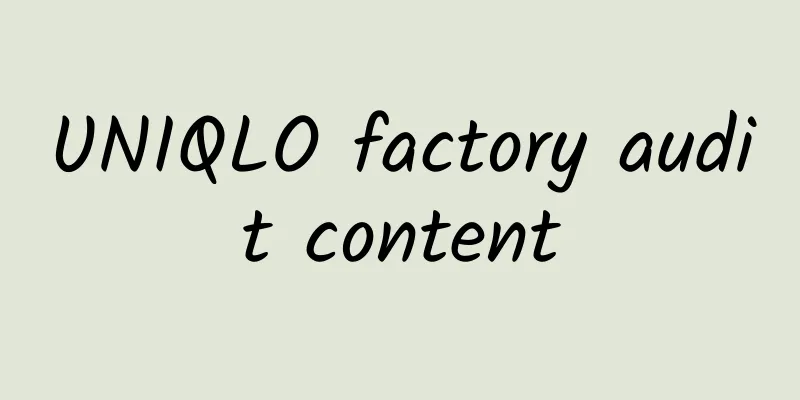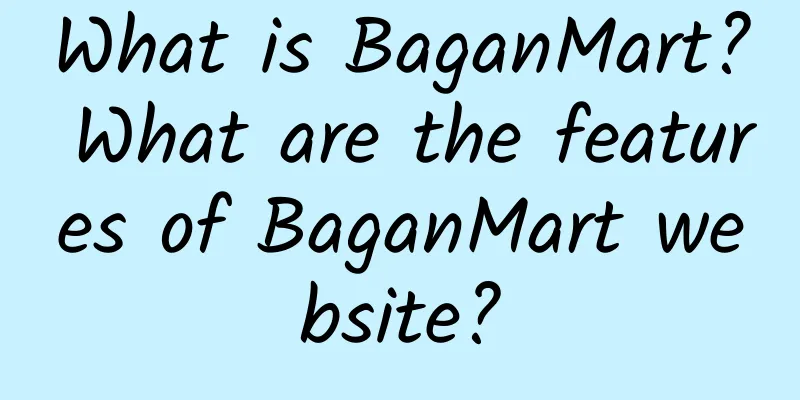UNIQLO factory audit content

|
UNIQLO Introduction UNIQLO is a well-known Japanese clothing brand. It was established by Japan's Fast Retailing in 1963. It was a small clothing store selling suits at that time. Now it is a core brand of Japan's Fast Retailing Group, which ranks among the top in the global clothing retail industry. It insists on providing modern, simple, natural, high-quality and easy-to-match products to consumers all over the world. The "versatile" concept it advocates is also well known to the world. UNIQLO's parent company, Fast Retailing Limited, officially entered the Hong Kong stock market on March 5, 2014 in the form of Hong Kong Depositary Receipts (HDR), and made a secondary listing on the Hong Kong Main Board in the form of an introduction. UNIQLO factory inspection specific audit matters (1) Working hours The company shall comply with the applicable laws and industry standards regarding working hours. The standard work week shall not regularly exceed 48 hours, and employees shall have at least one day off every 7 days. All overtime work shall be paid with additional allowances. In any case, the overtime hours per employee per week shall not exceed 12 hours, and all overtime work must be voluntary. (2) Salary and remuneration The wages paid by the company to its employees should not be lower than the minimum standards of the law or the industry, and must be sufficient to meet the basic needs of employees, as well as provide some disposable income and be paid in a form convenient for employees, such as cash or check; deductions from wages cannot be punitive, and the company should ensure that the composition of wages and benefits is clearly and in detail listed to employees on a regular basis; it should ensure that no purely labor-related contract arrangements or false apprenticeship systems are adopted to circumvent the obligations to employees prescribed by relevant laws. (3) UNIQLO factory inspection for child labor The company shall not use or support the use of child labor and shall take necessary measures with other individuals or interest groups to ensure the education of children and adolescents who are subject to local compulsory education and shall not place them in unsafe or unhealthy working environments or conditions. (4) Forced labor Companies may not use or support the use of forced labor or require workers to pay a "deposit" or deposit identification documents at the start of employment. (5) Disciplinary measures The Company shall not engage in or support corporal punishment, mental or physical coercion, or verbal abuse. (6) Discrimination The company shall not discriminate against employees in hiring, compensation, training opportunities, promotion, dismissal or retirement due to race, social class, nationality, religion, physical condition, disability, gender, sexual orientation, union membership, political affiliation or age; the company shall not interfere with employees' rights to exercise their beliefs and customs and to meet their needs related to race, social class, nationality, religion, disability, gender, sexual orientation, union membership and political affiliation; the company shall not allow coercive, abusive or exploitative sexual harassment, including gestures, language and physical contact. (7) UNIQLO Factory Inspection Management System Senior management should formulate open and transparent company policies on social responsibility and labor conditions based on this standard, which can be understood and implemented at all levels, and conduct regular reviews; appoint full-time senior management representatives to be responsible for specific matters, and allow non-management levels to select representatives to communicate with them; establish and maintain appropriate procedures to prove that selected suppliers and subcontractors comply with the provisions of this standard. (8) Freedom of association and the right to collective bargaining The company should respect the rights of all employees to freely form and join trade unions and to bargain collectively. (9) Health and safety The company should have the knowledge to avoid various industrial and specific hazards, provide employees with a healthy and safe working environment, take adequate measures to minimize the hidden dangers of hazards at work, and try to prevent accidents or injuries; provide a safe and hygienic living environment for all employees, including clean bathrooms, toilets, drinkable water; clean and safe dormitories; sanitary food storage equipment, etc. |
>>: Walmart's latest ES standards: unacceptable and acceptable on-site rectification
Recommend
Wildberries - Russian online sales platform
What are Wildberries? Wildberries was founded in ...
How is China Express? What services does China Express provide? What are the advantages of China Express?
How about AVIC MRT? Shenzhen AVIC Express Interna...
What functions does Shopistores have? How does Shopistores help me run Shopify?
Today, I would like to recommend Shopistores.com....
What are the opportunities for cross-border e-commerce in Haikou? What are the disadvantages and threats of cross-border e-commerce in Haikou?
What are the opportunities for cross-border e-com...
What is Burst? How to download Burst images?
Burst is a free stock photo platform powered by S...
Poccupine — Borderless Payment Gateway
What is Poccupine? Poccupine is an international ...
Gift Options—Personalized gift packaging service
What are GiftOptions? Gift Options includes Gift ...
APPLE Factory Inspection Code of Conduct
Apple Factory Audit Code of Conduct Labor and Hum...
What is luggage and mail customs clearance? What are the precautions for luggage and mail customs clearance?
What is luggage customs clearance? Luggage and ma...
Overview of Auchan Group's investment and development in China
Overview of Auchan Group's investment and dev...
French Sanofi-Aventis Group Factory Inspection-Introduction
The birth of Sanofi-Aventis Group: With the succe...
Suppliers and subcontractors in BSCI certification
Supplier/Sub-supplier Entities in a company’s val...
Plume Design—Smart Home Services Company
What is PlumeDesign? Plume Design is a smart home...
What is Piseer? What are the functions of Piseer?
What is Piseer? Piseer is a cross-border export e...
eBay store opening guide, store opening costs
To open an eBay store, you need to calculate the ...









